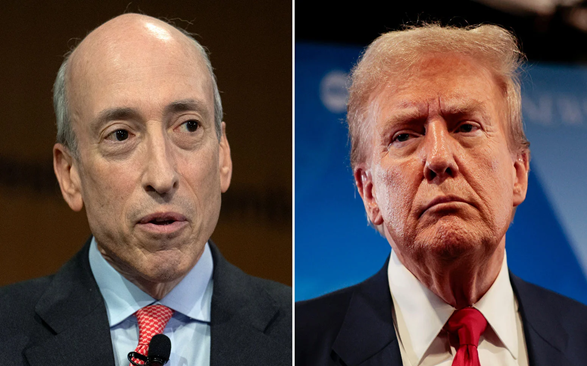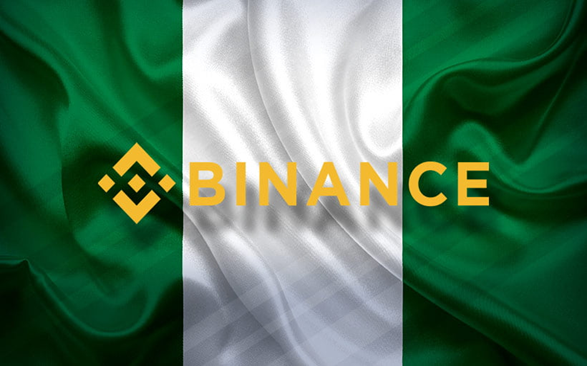by Jude Ayua
During an interview with Bloomberg’s David GuraLess less than two weeks to his imminent resignation as Chair of the US Securities and Exchange Commission (US SEC), Gary Gensler’s reiterated his stance on crypto regulation. The interview concerned Gensler’s future post US SEC, his work and legacy on bitcoin, crypto, protecting the public, and his perspective of the securities markets.
With Donald Trump scheduled to walk into the White House January 20, Gensler’s resignation is now even more imminent. Some might even say, overdue.
But what is Gensler saying?
Gensler on his work and legacy at US SEC
Gensler expressed gratitude for his work at the US SEC, counting it a privilege to have led the multi-trillion dollar sector over the past four years.
“It’s a great privilege to be in a role like this. I am the 30th chair and it’s a big country; so I really [want to] start with a ‘thank you’ to Joe Biden for asking me to do it. But what’s remarkable about this role is it oversees the 123 trillion capital market which touches everything in our economy.”
Read also: Gary Gensler: The Imminent Resignation of the US SEC Chair and His Legacy.
When asked about how he feels about the public attacks against his office as US SEC Chair, Gensler expressed confidence in his work. “Because you’ve got to raise money for most of what we do in our economy … I feel terrific… That’s what public policy is about; you walk into Central Square and you debate these important things for 330 million Americans.”
Gensler remains unmoved, believing attacks are inevitable when engaging in public policy issues: “I’ve worked over the years with Hillary Clinton on a number of campaigns and remember Hillary saying once, ‘if you’re not willing to be attacked, you can’t go into the public square and debate policy.’ So I think it’s part of our great democracy.”
Comparing the difference between his work environment and experience at the Commodity Futures Trading Commission (CFTC) after the global financial crisis and the SEC, Gensler remarked the atmosphere between the two agencies is different. Gensler proceeded to highlight the relevance of his work at the SEC, emphasizing consumer protection and lowering the cost of market participation:
“What we do here at this great agency is look out for every day Americans people just trying to save for a better future and try to move through things that help them like we’ve done… There was no Federal rule that you needed to get a notice if your day was hacked. We put in place some rules to do that,” Gensler said. “So we’re looking out for every day Americans trying to lower the cost of the market to trade stocks [and] bonds,” he added.
Gensler expressed his concerns about the middlemen in the market who pose a threat to consumers:
“…then there’s some in the middle of the market, they’re called brokers, dealers, intermediaries, stock exchanges who, like their business model, if we’re changing the rules to benefit everyday Americans, they might have thoughts about that and object. And that’s part of the process. but our clients, ultimately, are people at their kitchen tables.”
Read also: Paul Atkins to Succeed Gensler as US SEC Chair.
On bitcoin, crypto, and protecting the public
About crypto, which is less than one percent of the $123 trillion US financial market, Gensler emphasized his leadership has done a great job in addressing market risks in the sector. “I think that we’ve done some good things [here]” Gensler said. He remarked that his predecessor, Jay Clayton, when he was trying to address this new emerging part of finance, brought 80 enforcement actions, while Gensler’s administration brought about a hundred in four years. Gensler added these enforcement actions may be about five percent of what the US SEC does in its law enforcement, the remaining 95 percent being about scammers, fraudsters, and other things.
“This field is rife with bad actors,” Gensler.
Gensler said that the crypto market is “rife with bad actors.” He took some time to explain what he believes the public does not know about the crypto market: “[the] public knows a lot about bitcoin which, depending on its market value on any given day, is two-third to 80 percent of the market value of crypto, and then there’s everything else—or, some people say ‘bitcoin and ethereum, and everything else.’” Gensler explained further that these “everything else” are 10,000 or 15,000 projects “raising money from the public and the public are investing hoping for a better future.”
“…a field wrapped up in sentiment and not fundamentals.”
Gensler also lamented the sentiments in the crypto market which “bad actors” leverage to sway the public. “I’ve been around finance for over four decades and everything in the market trades on a mixture of fundamentals and sentiment… but I’ve never seen a field that’s so much wrapped up in sentiment and not so much about fundamentals.” Gensler believes it is the illegitimate projects that often scam the public:
…these 10,000 or 15,000 projects, many of them will not survive; they’re like venture capital investments. They’re not gonna survive but there are also a fair number of small pump and dump schemes… And of course, we lived through a few years where they became notorious but they’re in jail now: the Sam Berkman Fried’s, Do Kwon’s… where tens of billions of dollars were lost by investors.
Read also: Based upon bitcoin innovation, the crypto asset class has ballooned, observes Gary Gensler, Chairman, US SEC.
On enforcement and anticipated change
Once again, Gensler reiterated his stance on enforcement actions in the crypto space. Justifying it in affirmation to David Gura’s question that bringing those actions has led to a change in behavior, Gensler remarked, “It’s a field that was built around non-compliance and I’m proud of what we’ve done, building on what Chair Clayton and others had done previously.”
He further emphasized that there is still work to be done in terms of public awareness, particularly about the 10,000 or 15,000 alternative coins in the market.
I think there’s still work to be done and I think the public is probably aware of this… less than 10 percent of the public invest in this field… somewhere between seven and nine percent of the public should be aware that these are highly speculative investments, and they’re not getting the full and fair, just exposure that’s appropriate.
Gensler further highlighted that what the US SEC has done for 90 years of its existence is letting the public decide what they want to invest in. And secondly, that the intermediaries, brokers, stock exchanges, advisors are advising and operating without fraud and manipulation.
Final thoughts: “I deeply believe in markets.”
When asked about his transition from academia to public leadership and how that influenced his approach to cryptocurrencies, Gensler explained the evolution in his approach: In academia, it is about studying or observing it and trying to teach students about it; in his job as a Chair of a five-member Commission and over 5,000 people, it is about addressing the risks and other challenges and enforcing compliance.
About his perception of the market, especially considering that some say he has fashioned himself as a climate crusader, Gensler emphasized, “I deeply believe in markets,” noting he is just a securities regulator. He added that the work his administration has done is to bring some consistency in companies’ disclosures to their investors about climate risks, since many companies are already making those disclosures.
While the wider US crypto community sees the Gensler-led SEC as an anti-crypto regulator, Gensler is still confident about his leadership of the US SEC, emphasizing his commitment to ensuring compliance, investor protection and public awareness about risks associated with the crypto market. With a few days to Gensler’s resignation as SEC Chair, the crypto community is optimistic about a transformative overhaul of the crypto regulatory climate under Trump’s administration.
Read also: US Crypto Regulations: Trump Considering Quintenz for CFTC Chair.
Jude Ayua is a policy analyst at CAB. A lawyer, Jude is an associate at Infusion Lawyers where he is a member of the Blockchain & Virtual Assets Group. He is also a member of the Policy & Regulations Committee of the Stakeholders in Blockchain Technology Association of Nigeria (SiBAN). Jude reports and writes on crypto policy and regulations. jude@infusionlawyers.com
Discover more from Crypto Asset Buyer
Subscribe to get the latest posts sent to your email.





